A Sunday service at the Church of Acts in Oklahoma City looks similar to most churches in some ways. There's singing and preaching. They recite ancient creeds. But it looks completely different in other ways.
"We've had people who've come in, tweaking on drugs," says Lead Pastor Bryon Akerman. "We have people coming from all different walks of life. Probably 65–75% of our people are either coming out of addiction, homelessness, or prison. Plus, we go into the prison, and we have about 125–130 that are there for our service there."
A CHURCH OF LIARS, DREAMERS, AND MISFITS
WATCH: In the heart of Oklahoma City, the Church of Acts advocates for the broken and marginalized, specifically those who are in prison or who are formerly incarcerated. "We don't relapse—we're like a resurrection."
How did the Church of Acts become a place where so many former and current prisoners feel at home? It starts with values—or in this case, a manifesto.
A CHURCH OF LIARS, DREAMERS, AND MISFITS
The Church of Acts' manifesto begins like this: "We will advocate for broken and marginalized people everywhere, both inside and outside of the church. We will be a house of mercy."
Bryon, who planted the Church of Acts in southwest Oklahoma City with his wife Abby and kids, takes this to heart. He wasn't raised in a rough neighborhood. Growing up, he never smoked or drank or even cussed. "Whenever we first started in this type of ministry, every couple of minutes I checked to make sure I hadn't been pick-pocketed," he remembers.
"But now you see beyond that, and you see who they are. And they're people just like us. They have a different story, different background. … And you begin to understand, and God opens your heart up to that."
The Church of Acts lives this open-hearted posture. "Most people would refer to us as a recovery church," Bryon says, “but we just refer to ourselves as a church of liars, dreamers, and misfits. And we have people from all different walks of life. We have people coming right out of prison."
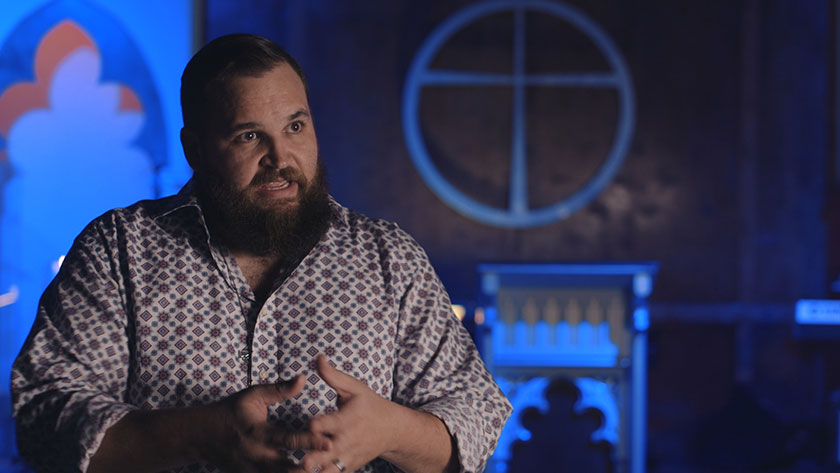
'Most people would refer to us as a recovery church, but we just refer to ourselves as a church of liars, dreamers, and misfits.'
When he says, "right out of prison," he means it.
BRINGING THE GOSPEL TO PRISON
The church works with prisoners in three ways: They take the church behind bars, they bring incarcerated people to church, and they welcome former prisoners with open arms.
Aaron Cosar manages the Prison Fellowship Academy® inside the Lexington Assessment and Reception Center in Oklahoma. Aaron was formerly incarcerated and is also a member of the Church of Acts. He says the church has about 25 people "badged," meaning they’ve been granted access to go inside the prison.
"We go into the prisons all over the middle part of the state, the women's prisons and some of the men's," Aaron says.
One of those women's prisons is Kate Barnard Correctional Facility. Bryon, Aaron, and the Church of Acts team sets up on the yard. "And even though we bought a sound system, even though we have all these instruments," says Bryon, "the ladies in that prison sing louder than our sound system, because they are so excited about the faith."
'The ladies in that prison sing louder than our sound system because they are so excited about the faith.'
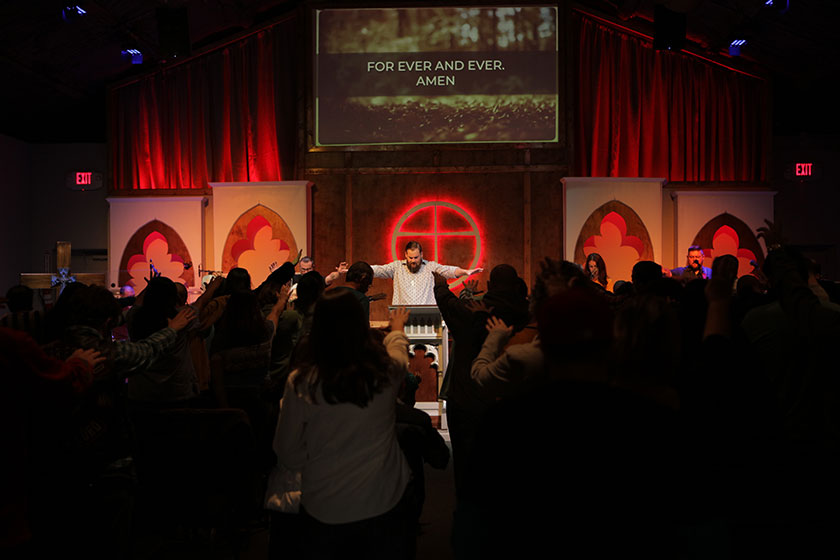
BRINGING PRISONERS TO GOD
The church also brings some prisoners to their church gatherings on the outside. Three times a week, the church sends a bus to sign 12 women out of Oklahoma City Correctional Center and brings them to the Church of Acts. The women are allowed out because they are part of a work release program.
Theresa, a church member, says these women are "a part of our church. And they're growing here, and they love the Lord. This is the rock that they're standing on right now. This church is their rock, and they're learning to live a different lifestyle, to become women of God."
Colleen Johnson is one of those incarcerated women. She's been incarcerated for nearly a year and is awaiting her release. In her time at the church she's learning "how to get to the root of the problem rather than just saying we have a problem, … to actually figure out how it all started and to help us to keep from doing that again."
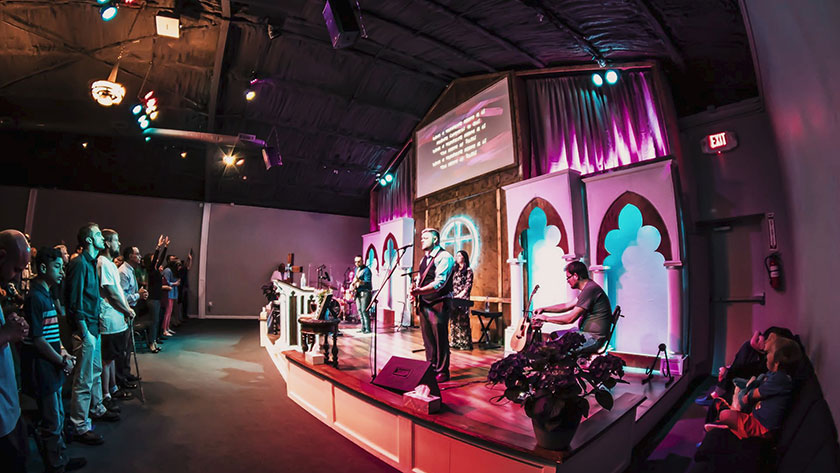
WELCOMING FORMER PRISONERS
Church of Acts members keep up the relationships they start on the inside. They know how important they are for successful reentry. Tammy Akerman—Bryon’s mother and associate pastor of the church—formed a relationship with Nina Flores when Nina was incarcerated at Mabel Bassett Correctional Center. Nina delivered two children during separate incarcerations.
Nina came to Christ while in prison. Tammy began discipling her. "I worked in the chapel at the prison the whole time I was there for 4 ½ years," Nina says. "And I stayed under Pastor Tammy and the church, and we had the Church of Acts in there."
Once she was released, Nina knew right where to go—the Church of Acts. "You need a covering when you get out … a support group," she says.
"You need people to surround you and keep you accountable. … That's what you need, and a lot of people don't want to do that when they get out. Because they've been in prison, they want to be free. They don't want anybody telling them what to do, and then they don't succeed because they go out there on their own and they don't make it. So what we do [at the Church of Acts] is, when you get out of prison, we give you housing. We teach you how to live."
'What we do is, when you get out of prison, we give you housing. We teach you how to live'
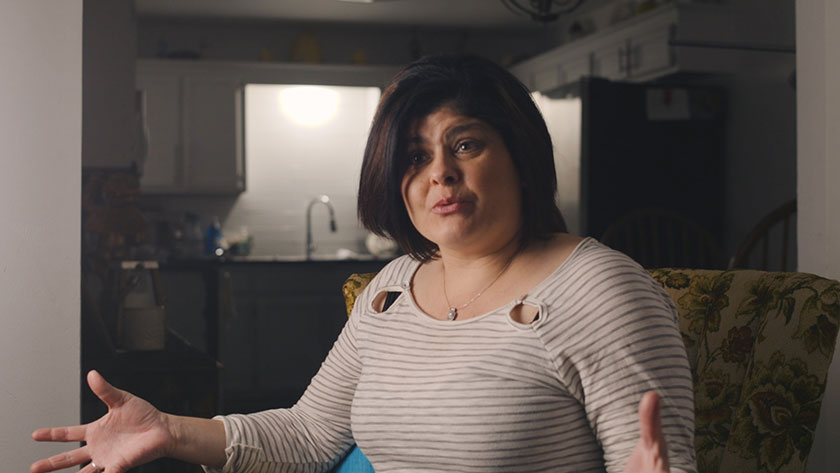
Having people like Nina and Aaron around the church who have been through life’s ringer and have done time makes others with similar pasts more comfortable to speak out.
'THAT'S WHAT WE DO IN OUR CHURCH'
"We're like a hospital, the Church of Acts," Nina says. "And so when people come in, we welcome them just right where they are. It doesn't matter what they're doing, what their addiction is."
Nina tells a story that captures the essence of the Church of Acts, and why the congregation is so effective at welcoming former prisoners:
We had a couple that lived in the apartments next door, and they were addicted to heroin. They walked in, and they were on heroin that day. But the Church of Acts, they met those people where they were at, and now they're delivered. They got their kids back. They got their son. And so that's what we do in our church.
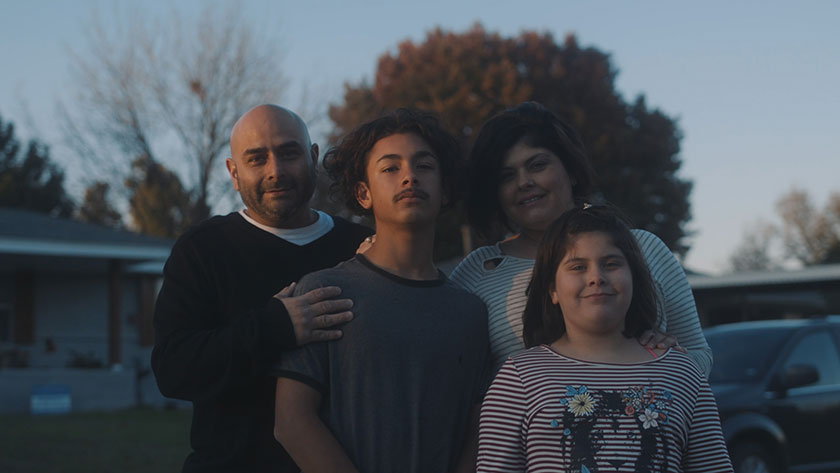
WANT TO WELCOME FORMER PRISONERS IN YOUR CHURCH?
If you want to help make your church welcoming for former prisoners, we invite you to download our free Second Chance® Sunday Toolkit today. This carefully cultivated Toolkit includes pastors' notes, a small group discussion guide, sample bulletin inserts, and coloring pages for kids—everything your church needs to host a Second Chance Sunday this April.
DID YOU ENJOY THIS ARTICLE?
Make sure you don't miss out on any of our helpful articles and incredible transformation stories! Sign up to receive our weekly newsletter, and you'll get great content delivered directly to your inbox.
Your privacy is safe with us. We will never sell, trade, or share your personal information.
SUPPORT THE WORK OF PRISON FELLOWSHIP